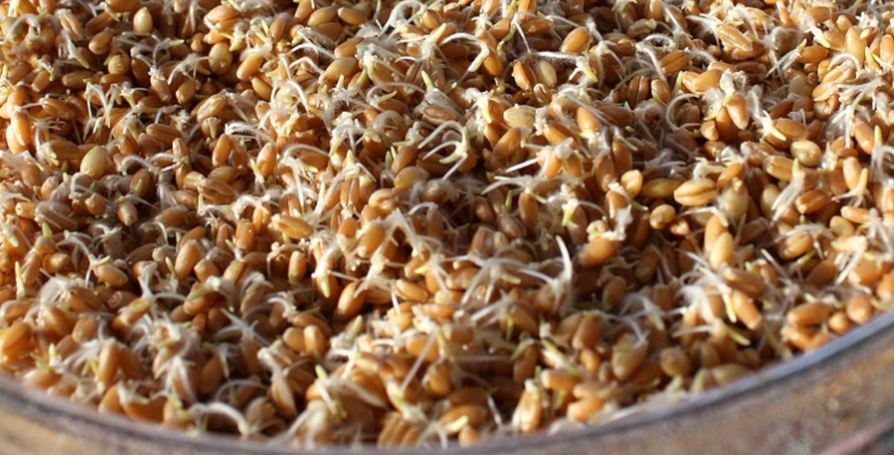One of the more common questions I get is about sprouted grains. So lets take a look at sprouted grains and how they are different from the grains we eat every day.

By now you understand that I don’t think that you shouldn’t be eating grains at all. While we are smart enough to figure out how to make grains into a food, they are not meant to be eaten by humans. Eating grains is the easiest way to increase your blood sugar and they contain all sorts of protections (such as lectins) that lead to inflammation and other problems in our bodies. Add to that the fact that most grains are processed (in the form of puffy cereals, donuts, and sugary breads) and you are left with a food that will only harm your body.
If after all that, you still want to eat grains, the best way to eat them is to have them sprouted.
Grains Don’t Want to be Digested
Remember that grains build all sorts of protections to keep you from eating them. The best thing that could happen to a grain (from the grain’s perspective) is to have an animal eat it and then that grain remains undigested until it is deposited somewhere else on the earth with lots of nutrients and moisture around to help it grow. To this end, grains surround themselves with a protective sheath that makes them hard to digest. Imagine eating a bowl full of dried grains and think about how well they might be digested after they run through your digestive tract. In order to digest grains, you have to break that hard outside shell.
What Sprouting Does
The tradition of sprouting grains goes back as far as humans have been eating them. When you think back in history of the first people to start farming, most people picture women grinding grains on a grinding stone. While you might think that they took dry grains and ground them in the stone, anyone who has tried this would know how frustrating it can be. If you want to grind grains, letting them soak for a few days makes them much softer and easier to grind on a grinding stone.
Before grinding stones were invented, most grains were probably soaked before grinding.
Spouting grains not only makes the grains easier to grind, it also makes them easier to digest. When you soak grains in water for a few days the grains begin a process of germinating that takes them from indigestible to more digestible. What is happening inside the grain as it sprouts is that enzymes inside the seed are beginning to break down the hard outside shell and this freeing up nutrients. The grain turns from a hard shell meant to protect itself to a soft sprout that is ready to grow. This completely changes the character of the food making it more digestible and more nutritious.
Another benefit of sprouting is that the seed starts to consume its own sugars for energy in order to create a sprout. A typical piece of regular wheat bread has around 110 calories, a sprouted wheat bread contains only 70. Sprouting also releases more vitamins and proteins.
Altogether, sprouting reduces (but does not eliminate) many of the problems with grains.
While I think it is better for you to leave grains out of your diet, eating sprouted grains is a much better option than standard grains and as long as you are not making them an everyday food, they are okay.









